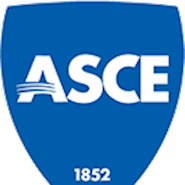
Onur Avci, Ph.D., P.E., F.ASCE, an assistant professor and Herbert P. Dripps Faculty Fellow in the Wadsworth Department of Civil and Environmental Engineering at West Virginia University, has been named a fellow by the ASCE Board of Direction.
Avci combines two decades of structural engineering practice and academic research to advance safer, smarter, and more resilient civil infrastructure.
His work integrates structural dynamics and steel structures with data-driven methods – especially machine learning and deep learning – for structural health monitoring, damage detection, vibration serviceability, and infrastructure resilience. He has attracted roughly $7 million in research funding as PI or co-PI, with recent awards from the American Institute of Steel Construction (AISC), the MKA Foundation, the U.S. Department of Transportation (via University Transportation Centers), the West Virginia Department of Transportation, and the U.S. Department of Energy. He serves as a task lead in FastFloor project for floor vibrations and acoustic serviceability, a multi-university effort developing a modular all-steel floor system with Northeastern (Lead), Johns Hopkins, Virginia Tech, and Iowa State.
Representative projects include novel damping and vibration-mitigation strategies for steel floor systems; LiDAR- and computer-vision-enabled inspection of coal refuse impoundments; adaptive, data-centric pavement performance modeling for state DOTs; and AI-based fault prognosis for wind turbine gearboxes. His publications span highly cited surveys and applications of 1D convolutional neural networks and modern AI in civil infrastructure (Mechanical Systems and Signal Processing; Journal of Sound and Vibration; Engineering Applications of AI), as well as practice-oriented studies in steel design and vibration serviceability (Journal of Constructional Steel Research; Journal of Building Engineering; ASCE journals). He is an associate editor for Mechanical Systems and Signal Processing (Elsevier) and Frontiers in Built Environment (Structural Sensing, Control & Asset Management).
Before joining WVU in 2022, Avci held academic roles at Iowa State University and Qatar University and served as a guest lecturer at the University of Leeds. His teaching portfolio at WVU includes Reinforced Concrete, Steel Design, Building Design, Nondestructive Evaluation, and various other structural courses. He has supervised graduate students across topics in modular steel systems, structural AI/vision, anomaly detection from acceleration data, and pavement analytics – many of whom have gone on to industry or doctoral roles.
In professional practice, Avci contributed to the analysis, design, renovation, and demolition of more than 55 million square feet of structural space while at Weidlinger Associates and AECOM, working on high-profile transportation, federal, and commercial facilities in the U.S. and abroad.
His honors include the AISC Terry Peshia Early Career Faculty Award (2024), the Herbert P. Dripps Faculty Fellowship (2024-27), invited/keynote talks on AI in structural engineering, and multiple inclusions in Stanford’s “Top 2% Scientists” lists.
Avci earned his bachelor’s degree from Middle East Technical University and his master’s and doctoral degrees from Virginia Tech, studying under Professors W. Samuel Easterling and Thomas M. Murray. He is a licensed professional engineer in New York and Connecticut. Across research, teaching, and practice, he aims to blend rigorous mechanics with state-of-the-art sensing and computation to elevate structural performance and public safety.



